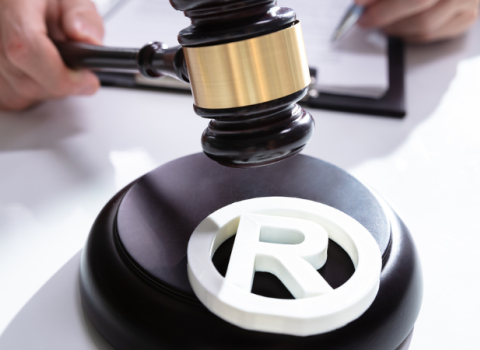Brussels is reviewing whether London can keep the pharmaceuticals and life sciences division of Europe's new unified patent court after Brexit.
“We are looking into it,” said EU Brexit negotiator Michel Barnier, speaking on Wednesday at a preview of the next round of talks, due to begin next Monday.
The court, based in Aldgate Tower, London, is part of the long-awaited unitary European Patent system that will simplify patent litigation by limiting disputes to a single forum. A lease was signed in 2015, but the UK’s vote to leave the EU has cast doubt on its future.
“We’ll look at the two agencies [the European Medicine Agency and the European Banking Authority] and we’ll look at the other parts of the system which mechanically will have to leave the territory of the UK,” Barnier said.
It is already known that the European Medicines Agency, which approves drugs for all EU countries, and the European Banking Authority, responsible for bank stress tests, will leave London after Brexit.
The future of the patent court remains unresolved, but Barnier’s words offer the strongest indication yet that it could also leave the UK.
This would deal a big blow to UK pharmaceuticals and life sciences, a sector in which the UK is a world leader. As well as signing the agreement forming the court, the court has held practice trials and advertised for judges to fill its bench.
Although it is not an official EU agency – a fact that makes questions regarding its future harder to answer – only EU member states can bring cases to the new court.
Doubt over UK role
The unitary patent, a single system to protect inventions across the EU, will be valid in 26 countries when it comes into force. Today patents have to be registered and enforced in individual countries.
It is unclear whether the UK can even sign up to the unitary patent after it leaves the EU. The UK government, which played a big role in developing the new system, has promised to ratify the new patent but the general election has delayed a decision.
Opting into the new system directly competes with the UK government’s repeated pledge to leave the legal remit of the Luxembourg-based European Court of Justice after Brexit.
The UPC will have its own jurisdiction to rule with respect to most patent issues but it ultimately must defer to the ECJ in a small number of areas of EU law. For now, the strategy of the UK government has been to ignore this awkward fact.
In January, the UK minister for intellectual property, Jo Johnson, said that he viewed the UPC as an international court, rather than an EU one.
The Brexit white paper setting out the UK government’s negotiation principles does not refer to the unitary patent.
The European Patent Office will administer the new patent on behalf of the EU. Its president, Benoit Battistelli, has said he is sure the EU can find a way to keep the UK in the unitary patent after Brexit. “I’m convinced we’ll find a solution even if there is a hard Brexit and the UK leaves the single market,” Battistelli said in March.
European countries have been slowly ratifying the patent, with 12 of the 26 countries involved already voting for it.
Ticking clock
Before the issue of the patent court comes up in talks, the UK will need to settle its accounts with the EU. Barnier reiterated that all outstanding debts must be paid by the UK.
On Tuesday, Boris Johnson, the UK foreign secretary, said the EU could “go whistle” for “extortionate” money, suggesting the government would not be willing to pay a big divorce bill, which some estimates have suggested could be as a high as €100 billion.
Firing back, Barnier said, “I am not hearing any whistling, just a clock ticking.”
The EU negotiator rejected the idea that the bill would be punitive. “People have used words like ransom,” said Barnier. “It’s not an exit bill, it’s not a punishment, it’s not a revenge, it’s simply settling accounts. It’s not easy and it might be expensive, but we are not asking for a single pound or euro more than they have legally agreed to provide. You can discuss this or that budget line, but they have to start by recognising that they have entered into commitments.”





 A unique international forum for public research organisations and companies to connect their external engagement with strategic interests around their R&D system.
A unique international forum for public research organisations and companies to connect their external engagement with strategic interests around their R&D system.